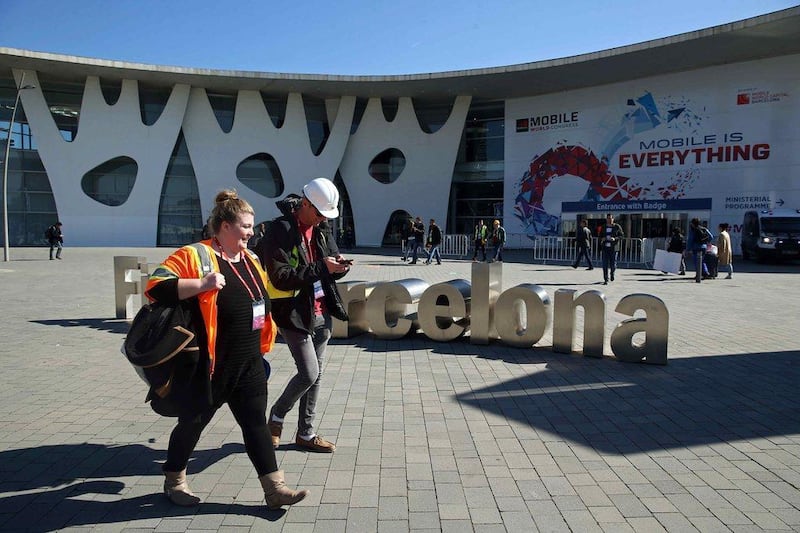The world’s telecoms and technology industry have descended on Barcelona for the annual Mobile World Congress, which opens its doors on Monday.
Nearly 100,000 delegates are expected to pass through the doors of the conference and exhibition, which runs until Thursday, as some of the industry’s biggest names unveil their newest devices.
Keynote speakers at the congress are to include the Facebook chief executive Mark Zuckerberg, the China Mobile chairman Shang Bing and the Etisalat Group chief executive Ahmad Abdulkarim Julfar, who also serves as the deputy chairman of industry body the GSM Association.
The announcements of new products began in earnest on Sunday, with high-profile mobile launches expected from Huawei, LG and Samsung through the course of the day. After that, Sony is scheduled to make product announcements on Monday morning.
On Sunday afternoon in Barcelona, Huawei launched its MateBook – a hybrid of a smartphone and a laptop. The device has a 12-inch screen, a sixth-generation Intel Core m-series processor and operates on Microsoft’s Windows 10.
Meanwhile, LG showed off its first modular smartphone, with its B&O sound system and wide-angle lens. A modular smartphone is made out of separate components, which enables users to replace or upgrade certain functions independently.
In the new G5 smartphone, LG has added a B&O sound system and a 135 degree angle lens to lure customers less keen to upgrade to devices only marginally better than the ones they already own.
This is a challenge for the sector as a whole.
Growth in smartphone sales slowed to its lowest level since 2008 last quarter, according to the industry analyst Gartner, with sales in premium devices such as the Apple iPhone and Samsung Galaxy S range increasingly giving way to cheaper devices.
“Basic and lower-end smartphones will account for two-thirds of smartphone sales by 2019,” said Roberta Cozza, a research director at Gartner, last week. “In the same year, only 20 per cent of smartphone sales will come from mature markets. During the next five years we expect growth in the smartphone market to come mostly from emerging markets.”
Device manufacturers and smartphone software providers are also facing increasing pressure from regulators over encryption protocols, with governments leaning on companies to give them greater access to personal communications.
Apple, which does not attend MWC, last week said that it would contest a US government court order compelling it to assist the FBI in circumventing security software on the iPhone of Syed Rizwan Farook, one of two gunmen who went on a shooting spree in San Bernardino in California last year, killing 14 and injuring 22.
The order would oblige Apple to build a new version of its iOS smartphone software, circumventing key security features, in cases of emergency.
“Building a version of iOS that bypasses security in this way would undeniably create a back door,” the Apple chief executive Tim Cook said last week. “And while the government may argue that its use would be limited to this case, there is no way to guarantee such control.”
Google, whose Android software is the world’s most popular smartphone platform, has supported Apple’s stance.
jeverington@thenational.ae
* with additional reporting by Reuters





